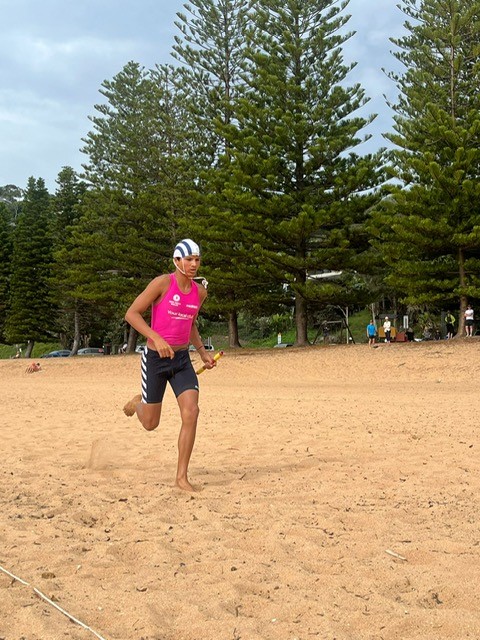Character In Action: Character Development through Authentic Service Learning Experiences
‘…love, joy, peace, patience, kindness, goodness, faithfulness, gentleness and self-control’
Galatians 5:22
Dear Students, Parents and Carers
A large part of Shore’s value proposition is that we aim not only at outstanding academic results and co-curricular experiences; we are also very intentional about developing young men of excellent character who will enter the adult world as men of comprehensive excellence. We undertake this mission amidst multiple definitions within society, and especially online, of masculinity. Our aim is for the good; our Christian position reflects the words of the Apostle Paul in highlighting values and virtues which he describes as ‘love, joy, peace, patience, kindness, goodness, faithfulness, gentleness and self-control’ (Galatians 5:22). These attributes are not ‘soft’ but indicate maturity and being in command of oneself. They are outward looking in terms of how we treat other people. Most of what follows represents the splendid vision of our Deputy Head, Pastoral Care, Mr Derek Champion in his own words:
At Shore, we build good men through a holistic education that emphasises our School’s guiding virtues such as respect, humility, service, and integrity. We teach these principles and offer practical service-learning experiences through our tutorial programme. This approach allows our boys to actively embody these virtues, promoting character growth and positive community engagement.
Our Character In Action programme is a structured initiative designed to foster a transformative learning environment at Shore, emphasising the cultivation of positive relationships, positive masculinity, servant leadership, and genuine connections. This programme is underpinned by engaging, tutor-led sessions that introduce students to the School’s core virtues, equipping them with the necessary language and understanding to embody these principles.
Our Year 11 students will be involved in a mentoring capacity and supported to deliver some reflective sessions in tutorial for younger students in Term 3.
Shore’s commitment to character development is further embedded in the School culture, ensuring that principles of character are consistently demonstrated and reinforced. This is achieved through various channels including service opportunities, School assemblies, meetings, camps, and leadership roles, making the virtues of character visible and tangible to all students throughout their educational journey.
In summary, Character In Action is more than just a programme; it has a foundational link to Shore’s ethos, designed to nurture well-rounded young men who exemplify Christian character in every aspect of their lives.

Programme Structure:
| Term 1: | Age and Stage Appropriate Instructional Sessions on Character Virtues: Two instructional sessions for each year group led by the tutor to provide consistency and quality delivery. |
| Terms 1-3: | Challenging and Authentic Service Learning Experiences: All boys, supported by tutors and pastoral leaders, will actively participate in a range of service projects. In tutorial, boys work through two sessions, led by the tutor, to learn about our service partners. |
| Term 3: | Leadership, mentoring and critical reflection: Supported by the tutor, Year 11 boys will lead structured reflection sessions for each year-based tutor group in tutorial time. |
| Term 4: | Engagement with the Impact 100 event to see and learn about innovative ways service is being done in our community. |
| Year 7 | Year 8 | Year 9 | Year 10 | |
|---|---|---|---|---|
| T1, L1 | Good Men | Honesty | Courage | Integrity |
| T1, L2 | Respect | Gratitude | Service | Humility |
As society changes, and as our programmes mature, we have reflected on their pertinence and aptness for delivery with the following questions:
Has, or will the environment for which we are preparing our boys changed in ways that mean we need to adapt how this character development takes place? What are we preparing students for? (do we need a more comprehensive programme beyond Year 11 tutor group)?
Yes, the environment has changed, and we can further develop how this character development takes place with a more comprehensive character education programme across Years 7 to 12. This must be carefully planned to consider capacity, training and links to the existing programme, to build on the excellent work that is already taking place. This will include partnership with all areas of School including the Pastoral Care team, co-curricular (coaches and outdoor education), Chaplaincy staff, and School leaders/executive.
Character education, which refers to the intentional teaching of values and virtues such as respect, responsibility, honesty, and kindness, is an important part of the educational experience for our boys. Research has shown that character education programmes can be effective in helping students develop important character traits and make positive, responsible decisions. For example, studies have found that character education programmes can lead to improvements in students’ academic achievement, behaviour, and social skills. Additionally, research has shown that character education programmes can be particularly effective when they are integrated into the curriculum, when they involve participation from parents and the community, and when they are supported by the School’s leadership and culture.
There is considerable research and evidence that the environment is changing and that building character in our young people is an effective tool to help them navigate this challenge successfully. Our boys will be more likely to thrive and flourish if they can build and maintain good relationships and connect with experiences that they find purposeful. Professor Nancy Hill in her most recent book is The End of Adolescence: The Lost Art of Delaying Adulthood (Harvard University Press, 2021), discusses how successful and affluent students can become disengaged if they feel hopeless or helpless with regards to job prospects and other important life achievements. Research in schools uncovered evidence for this when interviewing groups of students about the trend for low meaning and purpose scores in our surveys. Students discussed their concerns about being able to break into the Sydney housing market. Professor Hill states that we need to support our young people to build good relationships to manage transition to adulthood from school for all students so they can use these skills to succeed in other areas of life.
Tyler Vander Weele, Professor of Epidemiology and Biostatistics at the Harvard T.H. Chan School of Public Health, and Director of the Human Flourishing Program writes about the promotion of human flourishing and character development. His arguments are relevant to why we need to further develop our programmes on character to best equip our boys to be well and successful in the future. In his 2017 article on the promotion of human flourishing he argues for a deeper consideration and focus on understanding of outcomes such as purpose, and virtue and that we should move beyond narrow measures of any income or health.
The current programme aims to enhance students’ knowledge and understanding of the concepts of character so that they can consider what virtuous life is supposed to look like. We also encourage students to practice virtuous behaviour, with the knowledge that these can be acquired by habituation. Providing further explicit instruction in character traits and values will be of benefit. This can involve teaching students about specific character traits and the importance of living according to core values. We can further encourage students to develop greater understanding about their own character flaws and limitations, so that they can learn about influences and biases that can encourage non-virtuous behaviour and act as psychological impediments to virtue. Providing opportunities for students to practice and demonstrate character traits is also key. This can involve creating structured activities or situations in which students can practice and demonstrate character traits such as empathy, respect, and responsibility. Shore has established links with service-learning partners and continues to engage and further develop our service offerings and Christian practices which have character improvement as a by-product.
The ability to cultivate good relationships extends the digital space. Mark McCrindle in his book Generation Alpha describes young people today as digital natives who must be flexible, critical thinkers who can adapt, retrain, and upskill themselves to respond effectively to a changing workplace that values diversity, and be prepared for the possibility of many different careers. Research indicates that we need to teach practical and realistic strategies to help boys navigate online environments. Shore has already engaged with relevant experts from ysafe, Your Choicez, and others to help achieve this, and when combined with a whole school approach, we can more effectively prepare students to be equipped with the necessary skills and character values to make good decisions.

There is an opportunity to use the digital space for creating awareness of issues such as social and ethical responsibility. This an area were our young people need critical thinking skills, guidance from mentors and knowledge of related social responsibility concepts (social justice, community involvement, sustainability). Student leaders have knowledge and skills in this space, there is opportunity to encourage this further and bring awareness to more positive examples of behaviour that highlights good stories amongst the School and wider community. We have seen the need to gain student voice in this area. Our new Shore Student Committee, representing students from Year 7 to 12, will be asked to think on these issues.
Character development in young people is strong when they are part of community with strong values and positive role models. This is an area of strength for Shore, engaging young people with an authentic Christian experience, strong connection to community, and challenging curricular and co-curricular experiences. They will be more likely to develop important character traits to help them thrive as adults and form good relationships throughout life. This includes being principled, grateful, honest, and having empathy and caring for others.
Shore is keen to further develop our approach to character education and consider a character strengths framework based on our School virtues (Excellence and Rigour in Teaching and Learning, Integrity and Respect in Character, Humility and Compassion in Service, Faithfulness and Commitment in Community Life). We are keen to ensure that our programmes are evidence based. This will provide opportunities for students to access and engage with character language more explicitly across the academic, co-curricular and pastoral space. It is especially apt on International Women’s Day to articulate as a fundamental aim that our boys treat women and girls with deep respect as befits our desire to see equality and inclusivity manifested. The ultimate aim is to graduate students of wonderful character who deal well with men and women and contribute positively to society.

Mr Derek Champion
Deputy Head, Pastoral Care
Dr John Collier
Headmaster

































































